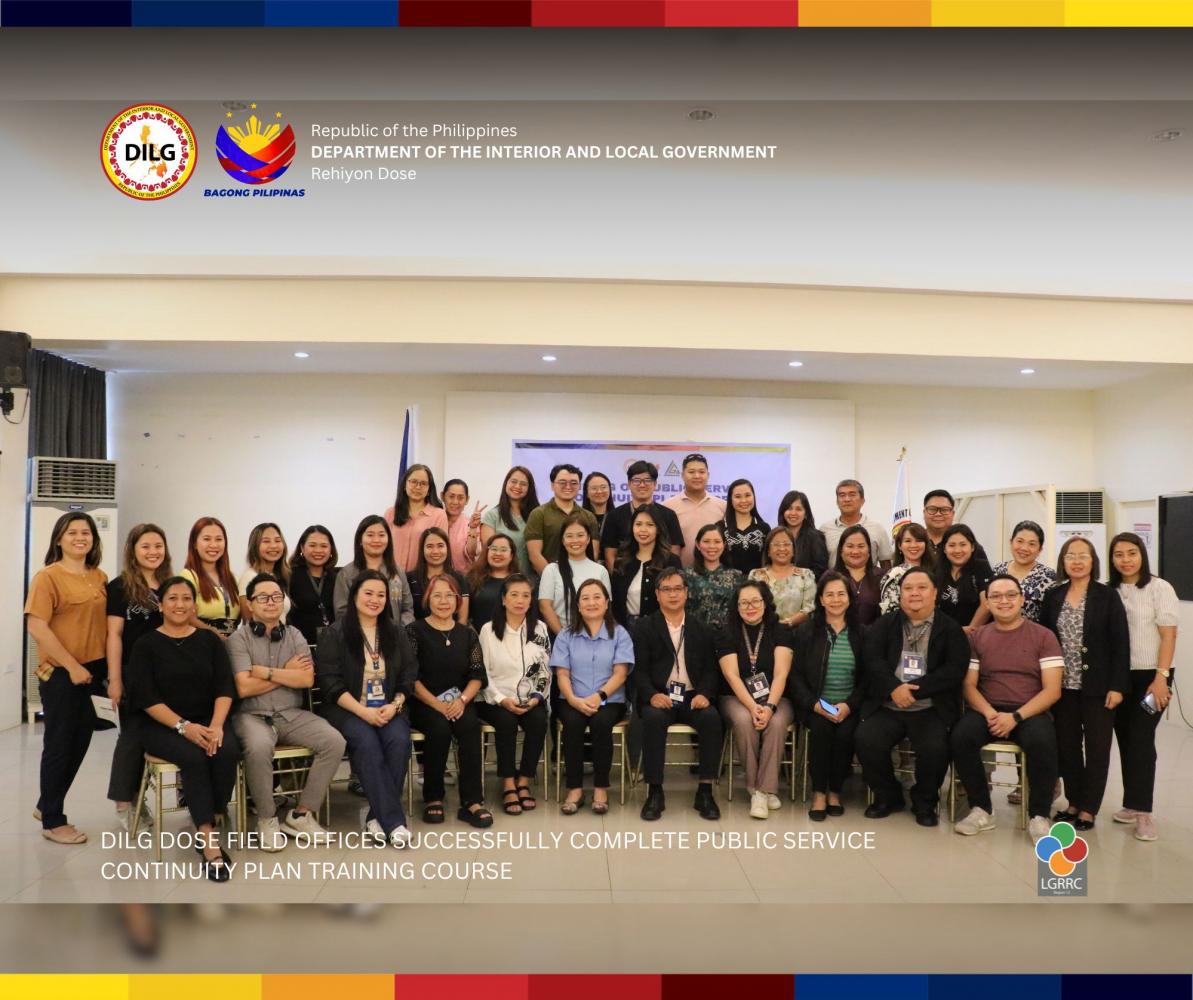
The Philippines remains highly vulnerable to both natural and human-induced disasters. Positioned along the Typhoon Belt and the Pacific Ring of Fire, the country experiences an average of 20 tropical cyclones annually, along with frequent seismic activities. These persistent threats underscore the critical need for robust and practical strategies to ensure the uninterrupted delivery of public services, even in times of crisis.
Recognizing this, the National Disaster Risk Reduction and Management Council (NDRRMC) issued Memorandum No. 33, Series of 2018, mandating all government agencies and DRRM Councils to formulate and implement Public Service Continuity Plans (PSCPs). These plan aims to strengthen institutional readiness and ensure operational continuity amid disruptions.
While DILG Region XII already maintains an updated regional PSCP, the unique contexts and operational landscapes of its Field Offices necessitate localized continuity plans. To address this, DILG XII, through the Local Government Capability Development Division (LGCDD), conducted a specialized PSCP Training Course for the PSCP Core Teams of its Field Offices.
The training Team composed of in-house experts – Maria Theresa D. Bautista, CDD Chief and Sheila Mae G. Kubik, Regional DRR-CCA Focal Person; and DRR Instructors Mercedita C. Foronda, retired Provincial DRRM Officer of Cotabato, and Civil Defense Officer III Jorie Mae E. Balmediano.
The training brought together representatives from Cotabato Province, Sultan Kudarat, South Cotabato, Sarangani Province, and General Santos City. By the end of the course, participants were able to present their draft PSCPs, which identified priority mission-essential functions and outlined strategic continuity measures to sustain critical services during emergencies and disruptions.
This initiative not only enhanced technical knowledge and planning capacity but also fostered a culture of proactive risk management and institutional resilience across the region. With these efforts, DILG Dose continues to champion a more prepared and adaptive plan, aligned with national resilience goals and the principles of sustainable development.




